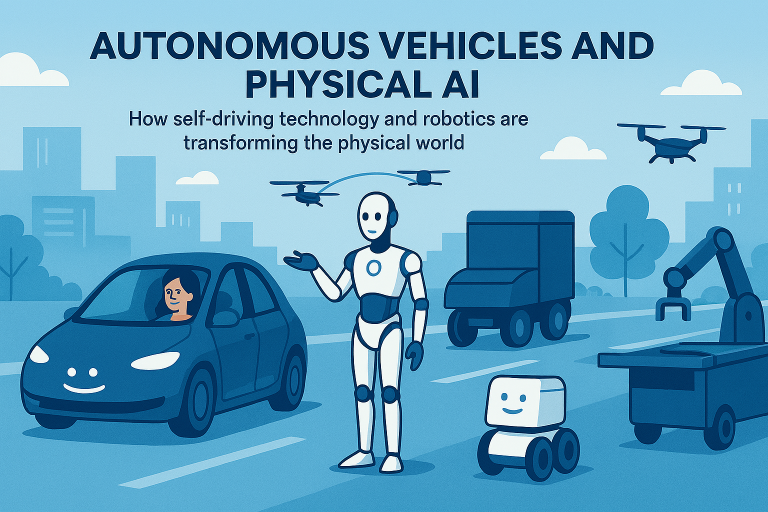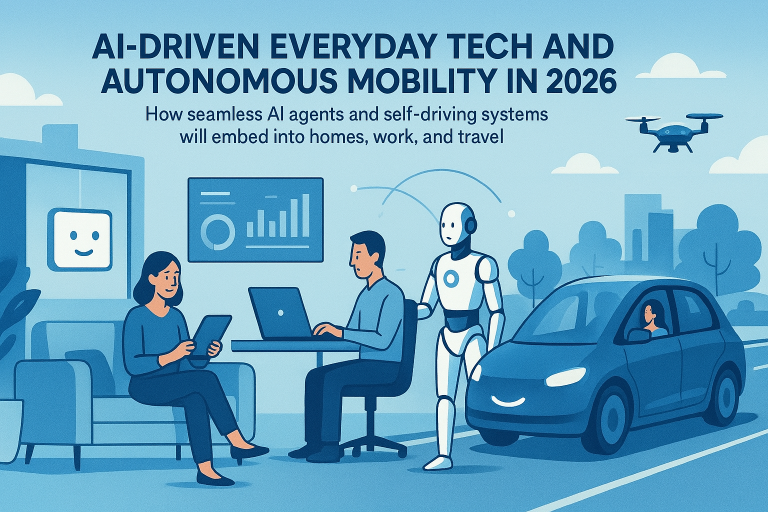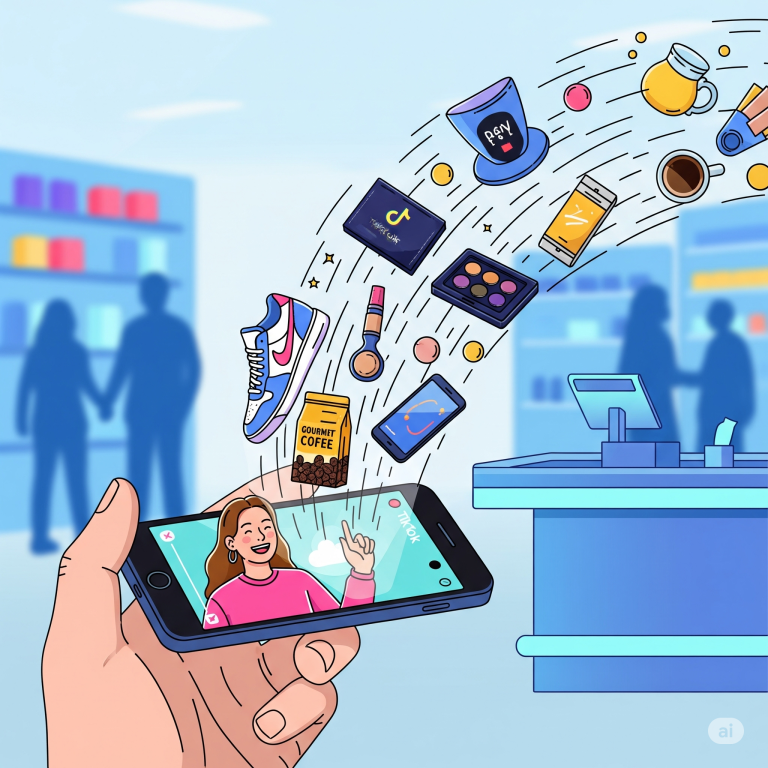
How Quantum Computers Could Change the Way We Use Technology Forever
Quantum computers are on the brink of changing the way we use technology in ways we can’t fully imagine yet. Unlike regular computers that process information in bits (ones and zeros), quantum computers use qubits, which can handle much more complex information. This means they could solve problems in minutes that would take today’s computers thousands of years.

For example, quantum computers might revolutionize areas like medicine by quickly simulating how drugs work in the body or help in creating better materials for things like solar panels. They could also make AI smarter by handling huge amounts of data in seconds.
While we’re still in the early stages, once quantum computers are more developed, they could power everything from faster internet to breakthroughs in science and technology. In short, quantum computing could be the game changer that reshapes our digital world, making tech faster, smarter, and more powerful than ever before.
Exploring the Future: Is Quantum Computing the Next Big Leap?
Quantum computing could be the next huge leap in technology. Unlike the computers we use today, which process information in bits, quantum computers use qubits. These qubits can be in many states at once, which makes them much more powerful for solving certain complex problems. Imagine a computer that can solve years’ worth of calculations in seconds—that’s what quantum computers promise.

Right now, we’re at the beginning stages. Researchers are working hard to build more stable and efficient quantum systems. If they succeed, quantum computers could change everything, from medicine to climate science to artificial intelligence.
But it’s not just about speed; quantum computing could also bring breakthroughs in encryption and data security. As quantum technology improves, we may see a world where we can solve problems that were once impossible with current tech. So, while it’s still early, quantum computing could be the next big leap that transforms how we live and work.
What’s Next After Silicon? Understanding the Quantum Revolution
As technology advances, we’re reaching a point where traditional computers, powered by silicon chips, can only go so far. This is where quantum computing steps in. Unlike regular computers that use bits to process information, quantum computers use quantum bits or “qubits.” These qubits can exist in multiple states at once, allowing quantum computers to solve complex problems much faster than today’s machines.

In the past, we’ve hit limits with silicon-based technology, like how fast processors can go or how much data they can handle. But quantum computing could break these barriers by processing data in entirely new ways. While it’s still early days, breakthroughs in quantum computing are paving the way for major changes in industries like healthcare, finance, and even artificial intelligence.
So, what’s next after silicon? The quantum revolution promises faster, more powerful computing that could change the world in ways we’re just starting to understand.
How Quantum Computers Might Solve Problems Too Tough for Current Tech
Quantum computers could be the key to solving some of the toughest problems today’s technology can’t handle. Unlike traditional computers that process information in bits (0s and 1s), quantum computers use qubits, which can represent multiple values at once. This makes them far more powerful when it comes to solving complex problems.
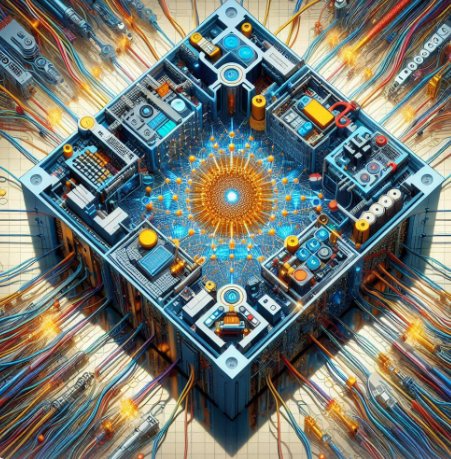
For example, quantum computers could help in fields like medicine by simulating how molecules behave, speeding up drug discovery. They could also improve climate modeling, helping us understand and fight climate change more effectively. In finance, quantum computing could analyze huge amounts of data to make better predictions, potentially revolutionizing investing and risk management.
While quantum computers aren’t yet fully ready to replace traditional ones, their potential to solve problems that are too difficult for today’s tech is huge. As breakthroughs continue, we could see quantum computers tackle challenges that were once thought impossible to solve.
Could Quantum Tech Replace Your Laptop in the Near Future?
Quantum computing might sound like something straight out of a sci-fi movie, but it’s actually making huge strides in the real world. While traditional computers use silicon chips to process information, quantum computers use quantum bits, or qubits, which can do calculations in ways regular computers can’t. This could mean they’re much faster and more powerful.

So, could quantum tech replace your laptop soon? Well, not just yet. Quantum computers are still in the early stages of development, and they’re mainly used for solving complex problems, like simulating molecules for medicine or improving AI. But in the future, as quantum technology advances, we might see it working alongside traditional computers or even replacing them in specific tasks.
For now, your laptop is safe, but who knows? As quantum breakthroughs continue, the computers of tomorrow could be a lot more powerful than we ever imagined. The tech world is getting ready for a whole new era!
The Science Behind Quantum Computing and What It Means for You
Quantum computing is a new type of computing that uses the strange rules of quantum physics to process information. Unlike regular computers, which use bits to represent either 0 or 1, quantum computers use quantum bits, or “qubits,” that can be both 0 and 1 at the same time. This ability to exist in multiple states allows quantum computers to solve certain problems much faster than traditional ones.
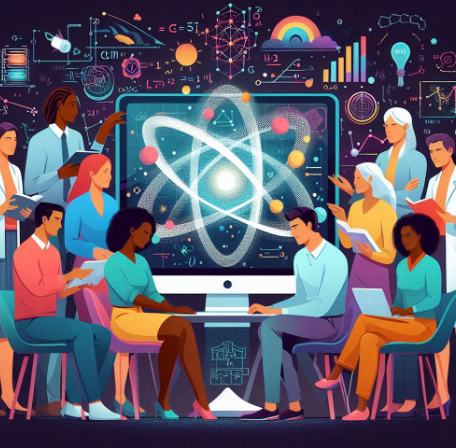
For you, this means quantum computing could revolutionize industries like healthcare, by quickly analyzing complex data, or even improve how we predict weather patterns. It might also speed up artificial intelligence (AI) developments, making AI smarter and more efficient. While quantum computers aren’t ready to replace your laptop yet, the breakthroughs happening now suggest that in the near future, quantum computing could change the way we tackle some of the world’s toughest challenges, from curing diseases to improving everyday technology.
Are We About to Leave Traditional Computers Behind?
Are we about to leave traditional computers behind? It might sound like science fiction, but with breakthroughs in quantum computing and the rise of AI agents, it’s becoming more of a reality. Traditional computers, which rely on silicon-based chips, have been around for decades. But as our digital needs grow, they’re starting to reach their limits. Quantum computers, on the other hand, use the power of quantum physics to solve complex problems that would take regular computers thousands of years to handle.

While we’re not quite there yet, experts believe quantum computing will soon handle tasks like simulating molecules for new medicines or improving artificial intelligence at lightning speeds. This doesn’t mean traditional computers will disappear right away, but we might see a shift in how we use them. As quantum technology improves, it could revolutionize everything from healthcare to communication, making our current devices look outdated in comparison. The future is coming fast!
created
Quantum computing is a new type of technology that could change everything we know about computers. Unlike regular computers that use bits (1s and 0s), quantum computers use quantum bits or qubits. These qubits can exist in many states at once, thanks to a special property called superposition. This allows quantum computers to process information much faster and solve problems that are too complex for today’s computers.
For example, quantum computers could help with tasks like drug discovery, weather forecasting, and even making better artificial intelligence. They can also handle massive amounts of data that would take traditional computers years to process in just a few seconds. While the technology is still developing, it holds huge promise for fields like medicine, finance, and more. So, what’s special about quantum computing? It has the potential to solve problems that were once considered impossible, bringing us closer to a tech-driven future.
How Quantum Breakthroughs Could Make Your Devices Smarter
Quantum computing is on the edge of transforming the technology we use every day. Unlike traditional computers that rely on silicon to process information, quantum computers use the strange principles of quantum mechanics to solve problems in ways we can’t imagine. With recent breakthroughs, these computers are getting faster and smarter, and that could mean big changes for the devices you use.

Imagine your phone, computer, or smart speaker being able to process massive amounts of data in seconds. Quantum advancements could make AI smarter, improve encryption for your online privacy, and help solve problems like climate change or medical research faster than ever. Devices could become far more powerful, handling complex tasks instantly.
While quantum computing is still in its early stages, the breakthroughs happening today suggest that in just a few years, your everyday tech could be far more efficient and capable than ever before. It’s an exciting glimpse into the future!
The Shift to Quantum: What Does It Mean for Tech in 2025 and Beyond?
In 2025, quantum computing is poised to make a huge impact on the tech world. Unlike traditional computers, which rely on silicon chips to process information, quantum computers use quantum bits, or qubits. These qubits can exist in multiple states at once, which allows quantum computers to solve complex problems much faster than today’s devices.

So, what does this shift to quantum mean for us? In the future, we could see massive improvements in areas like artificial intelligence, medicine, and cybersecurity. Tasks that take today’s computers years to finish could be done in seconds. Quantum computing could also lead to breakthroughs in drug discovery, help design better materials, and even improve climate predictions.
But it’s not all smooth sailing—quantum computing still has challenges, like how to stabilize qubits. However, as breakthroughs continue, we’re getting closer to a new era of technology that could change how we live, work, and interact with the digital world.

